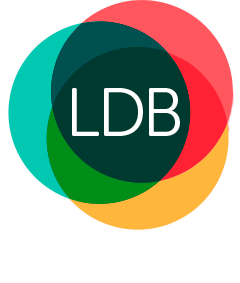FAQs: What medical professionals should know about insurance and financial planning
October 13, 2022

Insurance is an important part of a financial plan, and it’s particularly important for medical professionals who work in different ways.
Whether you work as a locum, an employee, or are considering going into a business partnership, there are some important things to consider, including the different types of insurance required at different times, depending on your personal circumstances.
Here are seven of the most common questions we are asked by professionals working in the medical industry.
1. What types of personal insurances are relevant to consider as an employee, a locum, or business owner running a medical practice?
As a medical professional, your personal insurance plan should protect your earning capacity as well as factor in your personal responsibilities.
The main types of personal insurance to consider are:
- Income protection
- Trauma insurance
- Total and permanent disablement insurance
- Term life insurance
- Business expenses insurance
Life insurance
Life insurance cover leaves your beneficiaries with a lump sum to help cater for their financial wellbeing.
TPD insurance
Total and permanent disablement (TPD) cover pays a lump sum should you become totally and permanently disabled through illness or injury.
Income protection
Income protection can provide you with a safety net if you are unable to work in the event of a temporary disablement due to sickness or accident.
Trauma insurance
Trauma or crisis cover provides a lump sum payment to help people recover from a traumatic event such as a heart attack, cancer or stroke. This lump sum payment can be used to ease financial stress during a period of recuperation, where items such as home modifications and specialist medical treatment may also be incurred.
Business expenses insurance
Business expenses insurance can help protect you by paying a monthly benefit to help cover the fixed business expenses that continue to be incurred while you are unable to work due to illness or injury.
You can learn more about how to structure your insurances here.
2. If I work as a locum with fluctuating income, how does income protection work?
Income protection insurance covers you for up to 80 per cent of your income should you be unable to work due to accident or illness. The cover is in proportion to your lost income, to provide enough financial support for you to return to work.
New legislation means that, from March 2020, insurers no longer offer agreed value policies. Income protection cover is limited to an indemnity policy only, which means that insurers will insure you for the income you say you are receiving at the time you complete the application.
If your income increases after you applied for your initial cover, you will be paid out up to the sum insured, not your increased salary/income.
For individuals with fluctuating income, such as a locum, it’s worthwhile applying for insurance following the 12-month period that you have received a higher income (should you wish to obtain the maximum cover available). That way, the insurer will consider your earnings for the 12-24-month period prior to you lodging a claim.
3. How can I own and pay for insurances? Are there different options available?
You are able to pay for life insurance, TPD and income protection cover either via your superannuation fund or personally.
Premiums for income protection insurance held outside of super are tax deductible, with income protection policies outside of super usually allowing a higher amount of cover and have more features and benefits available.
Trauma and business expenses insurance cover is limited to be paid personally.
4. How do I know what insurance I need?
In order to determine what insurance cover you need, you must first ask the question: what would I like to happen to me and my loved ones should I suffer a major health event?
No one can tell you what sort of insurance you need – you need to consider your own risk profile and appetite against what insurance policies can cover and will cost.
As a starting point, it helps to understand questions such as whether you would like to provide your surviving spouse with the ability to pay off all of your debts, set aside funds for your children’s school fees, what might occur if you or your partner were to suffer a permanent disability, and how this might affect you and your family.
There are a myriad of questions to consider, so it’s helpful to speak with a financial adviser who can help guide you in determining appropriate levels of insurance cover for you and how to best fund it.
5. What if I’m in a partnership and something happens to me or one of my business partners?
One thing to consider is the use of a buy and sell agreement.
A buy and sell agreement (or buy-sell agreement) is a legally binding contract that stipulates how a partner’s share of a business may be reassigned if that partner dies or leaves the business. Most often, the buy and sell agreement stipulates that the available shares be sold to the remaining partners or to the partnership.
A buy and sell agreement may also be called a buyout agreement, a business will, or a business prenup.
Buy-sell agreements often use insurance policies to fund the potential buyout in the event of a partner’s death or if they were to suffer a major injury or be prevented from earning an income.
6. What’s one thing that medical practitioners should be aware of?
A daily risk of working in the medical industry is accidental infection and the risk of occupationally acquired HIV.
Medical practitioners and others in the health industry should consider whether there is a benefit in obtaining Needlestick cover, which is an optional lump sum benefit attached to some insurer’s income protection benefits.
Needlestick cover is not restricted only to injuries caused by needles. Some Needlestick cover pays a benefit for occupationally acquired HIV, hepatitis B and hepatitis C (blood-borne pathogens) resulting from any kind of ‘sharps’ accidents, as well as ‘splash back’ and ‘inhalation’ of blood incidents (e.g. during surgery).
7. What other financial planning matters should medical professionals consider?
When considering the potential impact to your income and/or business if something were to happen to you, it’s important to understand the outcome that you would like to achieve for both your family and business partners.
Having both personal estate planning matters (e.g. wills and powers of attorney) in place as well as a business will (buy sell agreement) can ensure that you do not unintentionally leave complicated and unresolved issues behind for your loved ones to resolve.
Talk to the experts at LDB Group
With so much to consider, you may wish to engage a financial planning expert to ensure you are making the best decisions for your personal situation.
With experience working with individuals and businesses in the medical sector, our team at LDB Group can provide advice tailored to your specific needs.
To find out more, give us a call on (03) 9875 2900 or send us a note via the contact form below.
